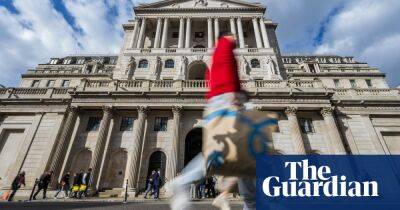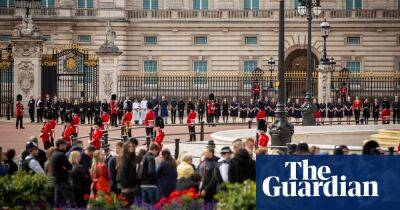Recession threat looms as UK grinds to a halt to mourn Queen
Britain’s fragile economy was already teetering on the edge of recession even before the death of Queen Elizabeth II last week. That prospect now looms a lot larger, as businesses cancel events amid the period of national mourning culminating in the bank holiday for the late monarch’s funeral.
Economists say high street shops closing their doors or operating reduced hours on Monday, alongside the loss of a full working day, will lead to a sharp fall in output at a time when Britain is struggling for growth momentum amid the cost of living crisis.
Estimates of the hit to the economy are inevitably sketchy and for the time being rely almost entirely on anecdotal evidence. There is already a rush of mourners to London, creating unprecedented demand on transport, in a boon for the capital’s hoteliers, cab drivers, hospitality venues and flower sellers, making up for losses elsewhere. However, it is unlikely to make up for the overall drop in activity.
“We see a greater risk that the UK slips into technical recession,” said Modupe Adegbembo, an economist at AXA Investment Managers. “As the UK mourns the death of the Queen, the additional bank holiday that has been granted for her funeral could see growth shift lower than we had initially expected, increasing the risk that the UK slips into technical recession this quarter.”
On past form, it is a question not of whether there will be a hit to growth but of how big the hit will be. There were extra bank holidays in 2002 to mark the Queen’s golden jubilee and in 2012 to celebrate the marriage of the Duke and Duchess of Cornwall and Cambridge, and both resulted in weaker activity as factories, offices and construction sites were shut down.
Over time, the growth of the digital economy
Read more on theguardian.com





















